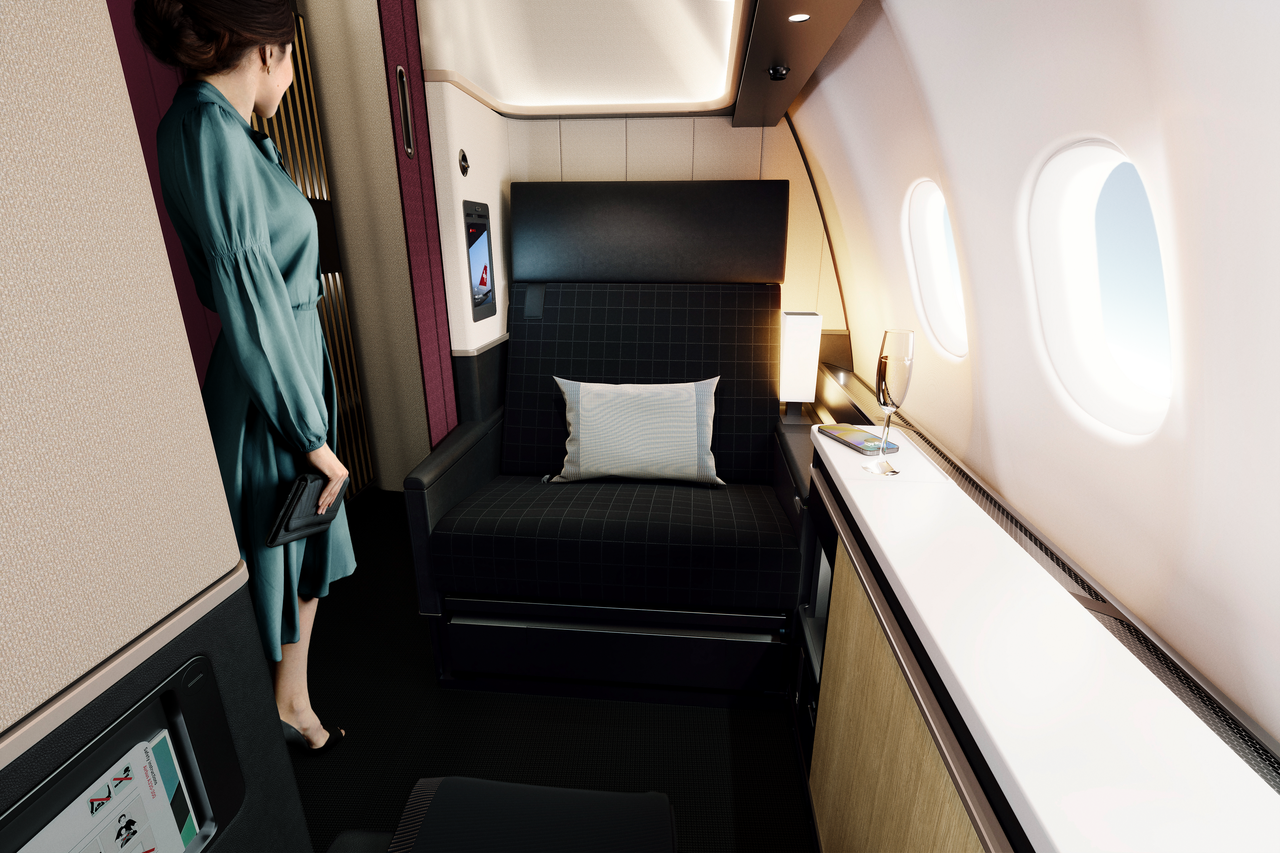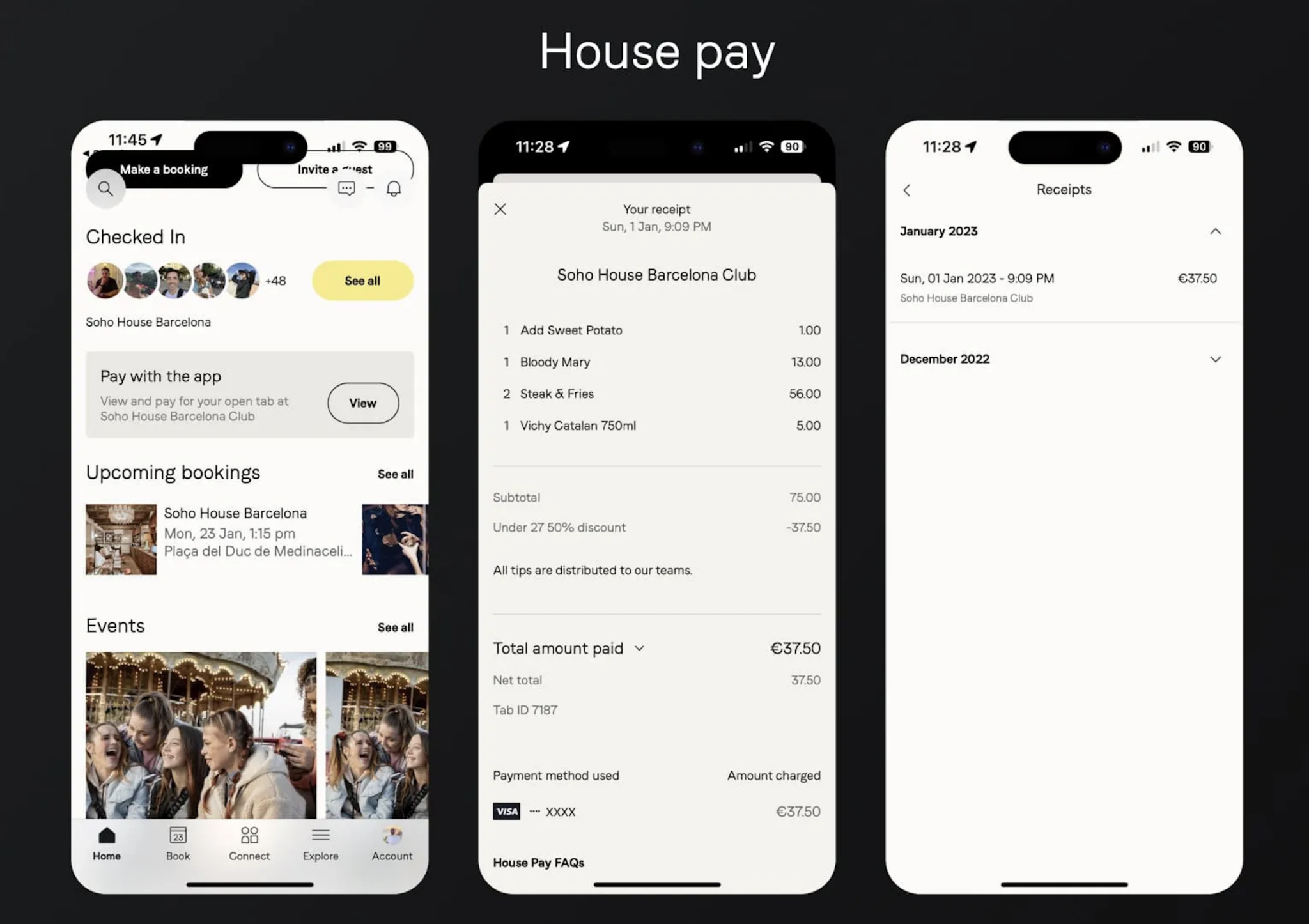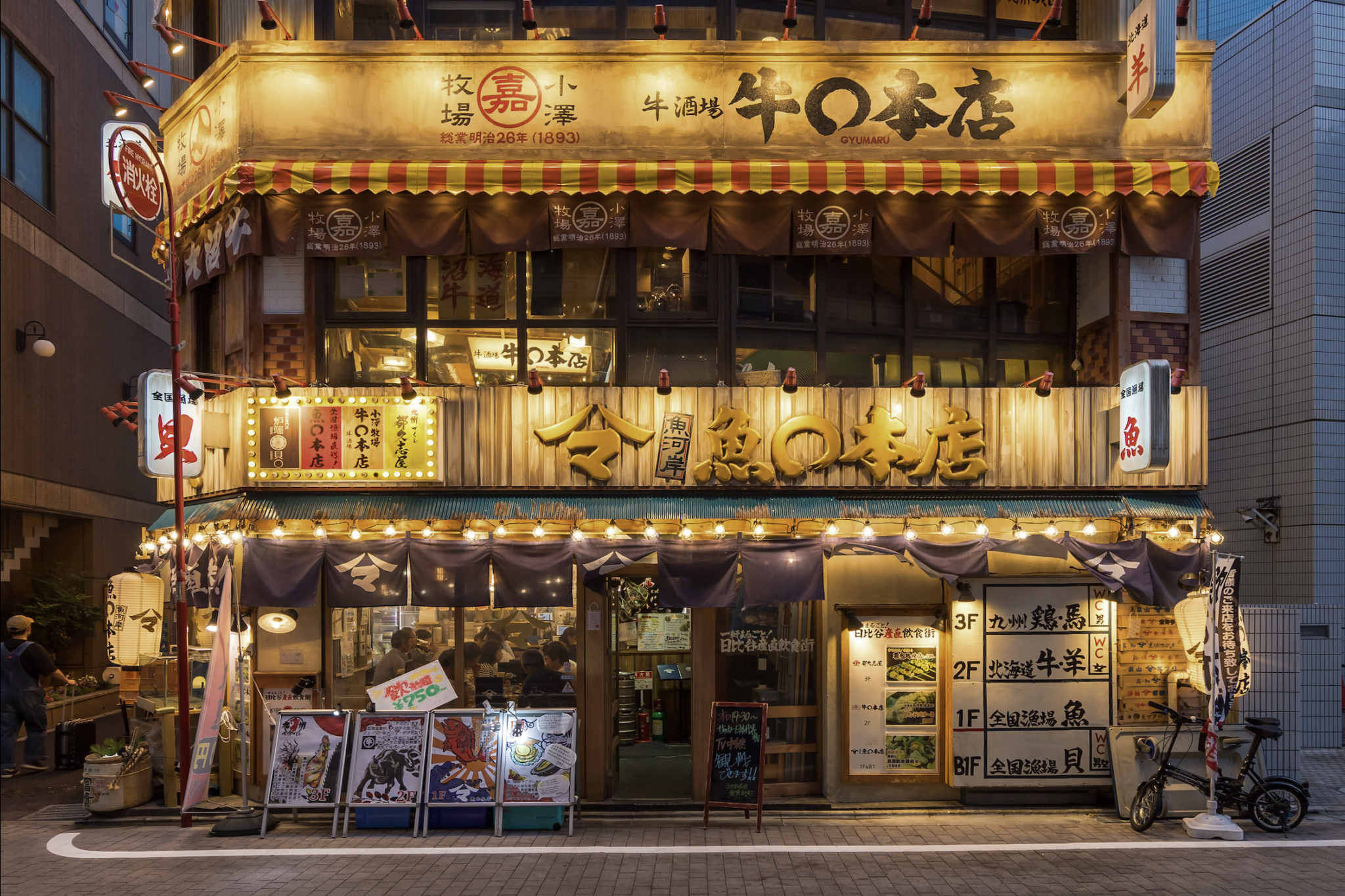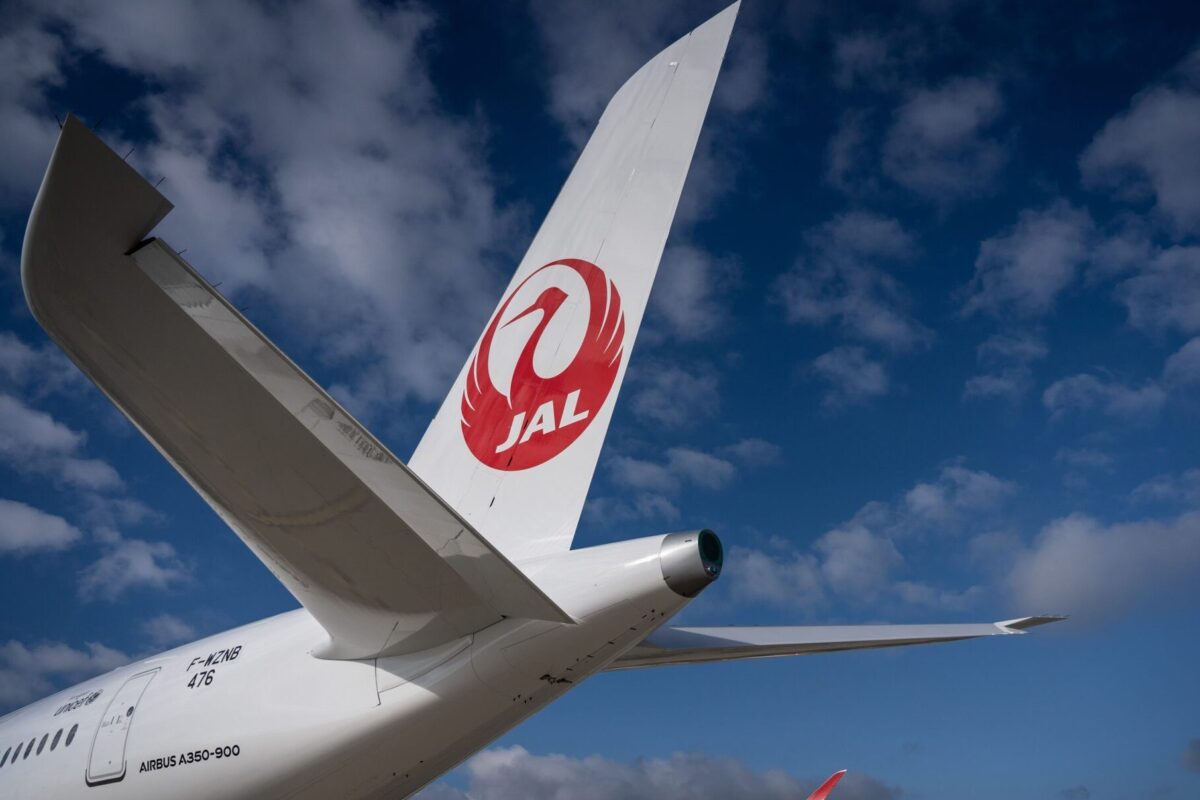The New and Outgoing Norwegian Cruise CEOs Talk Industry Challenges and Opportunities
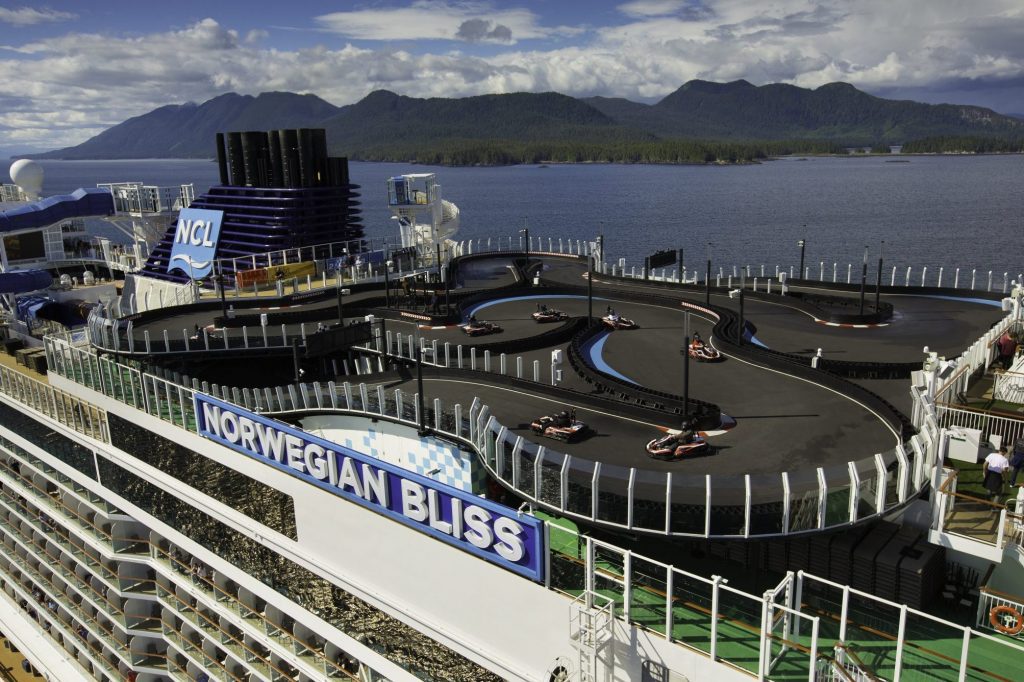
Skift Take
The cruising sector is in the midst of a continued building boom, creating new experiences for consumers on giant labyrinthine ships while also driving fares higher.
For Norwegian Cruise Line, the third biggest player in the mega-ship market, steady financial performance has been a hallmark of the last few years.
The cruise line is also undergoing a leadership change as it launched the Norwegian Encore, the line’s 17th ship, last week. Norwegian Cruise Line Holdings veteran Harry Sommer will take over leadership of the cruise line in the new year following the departure of Andy Stuart, who took charge of the company following a rough transition period.
Skift sat down with Sommer and Stuart to discuss digital shopping, sustainability, and the evolving cruise experience.
This interview has been edited for clarity and length
Skift: Harry, you’re taking over for Andy quite soon. Any big changes coming right off the bat?
Harry Sommer: You know, I get some version of that question almost every conversation I have. See, I’m going to start out by saying things are very, very good. I mean, Andy’s done a great job with the team in delivering what’s a fantastic product.
There’s no resort like this in the world, plus the benefit of getting to a different beautiful port every day. Andy’s done an incredible job these last four and a half years as the brand CEO. Delivering that product, putting together a great team, I have an A team working for me. Our guest satisfaction scores through the roof, past guests rate is highest ever in the company. I have to double down on this because it’s a great product, and continue working on getting that message out there. That this is the perfect vacation.
Skift: So over the last decade, the world of consumer shopping has gone digital. At the same time, travel agents are still crucial for cruise lines. How do you think about the distinction between channels going forward?
Sommer: It’s interesting that one shouldn’t confuse digital with direct. It’s two different things. So yes, absolutely, the way that people have bought cruises has changed over time. You go back 10 or 15 years ago, there were basically retail stores were the gateway to buy cruises. Now they’re at home, meeting agents on the phone, they do call centers. There’re virtual agents, but the critical thing is they’re all travel agents, so while the way people have bought changed, the intermediaries, travel agencies, they’re very much alive and present. I think to some extent it’s the strength of the industry.
You look at some other industries like the airlines, hotels to certain extent, they’re trying to do their best to dis-intermediate. I think that’s a minus. It’s a false savings because you save whatever it is, X percent commission, but you lose the benefit of having 10 to 15,000 really smart entrepreneurial people out there building demand. Yes you might save a couple of points in commission, but more important than commission is gross demand for the product, and that’s what they help us generate. We can’t succeed without travel agents.
Skift: Norwegian recently announced it will phase out single-use plastic bottles over the next few years. My stateroom, though, still has Q-Tips individually wrapped in plastic. How do you think about the ongoing process of becoming a more sustainable cruise line?
Sommer: You know, coming from the international side, I might have a little unique perspective on this because this has been a little bigger deal, especially in Europe. Germany, I think it’s probably the number one hot bed for this, at least in the major countries that we operate in. This is something we’ve been taking as serious now for at least four years. Even before it’s become, I don’t say that it’s a hip topic, but more vocal topic as it has been the last year or two.
We’ve been doing these annual sustainability reports. When you look at this, you have to start somewhere, and you start with the things that have the greatest impact. So yes, absolutely getting rid of the plastic around the Q-Tips, we want to deal with that, but more important, let’s get 50 million straws off the ships.
It’s getting 6 million water bottles off the ship. You have hundreds of thousands of those little shampoo bottles, the next thing that we’re looking at is the laundry, how do you get the sheets out of plastic bags and into the paper bags.
A lot of times we’re at the actual forefront of developing new technology, like this partnership that we did with Just Water. They existed before we came, but we’re now building a partnership together where it allows them to have a bigger footprint. They’re now sourcing their water in three different locations, so they’re always close to where ships are…
We’re not done. I mean, the mandate the Frank [Del Rio, Norwegian Cruise Line Holdings CEO] has given the ship is look at every single single use item, every single one and see what we can do to make it better. We can’t make it go away. You know when people live at home, no one lives in a zero waste environment, but we can make it better. One of the things we’re proud of are things like water consumption. People consume less water on a cruise ship than when they are at home. We just look at these things one at a time. We’re passionate, this is real for us.
Skift: I have an actual tough question for you.
Sommer: You go for it. We like tough questions.
Skift: Why in your sustainability report don’t you actually report the amount of carbon that’s output every year?
Sommer: That’s a good question. No, no it’s a really good question. I’ll look into that. I don’t know. You stumped me.
Skift: You share percentage of carbon output reduction, not actual output amount.
Andy Stuart: We share differently from the other cruises?
Skift: Every cruise line shares differently. I’m just curious because I’ve been doing some work, because we’re focusing on sustainability. It’s just like comparing the cruise lines, so it’s like Carnival, and Royal, they release hard numbers, although Royal hasn’t come out with their sustainability report this year, so who knows.
Stuart: I sort of look back, and I’m really proud of what we do. I feel that we should be more bullish than we are about what we’ve achieved as a company, and to an extent as an industry. The energy has gone into not meeting regulation, but getting ahead of regulation. Doing things that no one’s really asking me to do, but it’s the right thing to do.
You compare what we do to what’s happening on land in many cases, and we’re just so far ahead. I mean you look at if you went to the garbage room, you’d be amazed. I mean the way that we divide everything up, so everything ends up in the right place, and we crushed glass, and we recycle everything that’s recyclable. The right stuff goes in the right place in a level of detail that I’ve never seen on land anywhere we’ve looked. You go through the investment has been made in wastewater treatments.
Skift: A lot of this stuff’s kind of invisible to the cruiser.
Stuart: It is. Big sexy ship that rolls up into places, there’s a lot of assumptions. The industry has come so far and we as a brand push the limits of what’s possible. As Harry says, Frank asked for a list of every single-use plastic on the ship, and we’ve taken the biggest two, and we’re going to start checking things off. Somethings just aren’t available, there isn’t a replacement for the big black bin liners today. There will be, but today there isn’t.
Honestly, I believe that we should be really proud of what we’ve done. Are we perfect? No. Is it possible to be perfect? I don’t know.
Skift: I’ve noticed this new ship is equipped with a social media big board, showing Instagram posts of cruisers onboard. People want to post on social media, so it is interesting to see more of a focus on that.
Other cruise lines have gone even further into technology, using bracelets and such to track guests or allow them to buy things. How do you think about the line between building a compelling vacation experience and bringing more technology into the experience?
Sommer: Two different things you named there. We absolutely believe in the power of social media. It’s not an itch, it’s not going away. Facebook and Twitter and Instagram and Pinterest, they’re all real, and people enjoy sharing their experiences, and we think we have an experience for sharing.
We absolutely encourage people to go on, and talk to their friends, word of mouth. Our biggest [task] is in letting people know that this is a much better vacation than a resort. One of the statistics that we’ve seen is that of every 50 vacations that people take, one is taken on a cruise and 49 are taken at some land-based alternative. We’re not necessarily looking to compete with Royal and Carnival for the one.
I’d rather compete with the resorts for the 49, because we can grow 50 times times the size we are today. Assuming that the vacation industry as a whole doesn’t grow, which it obviously will as well. I think there’s so much there, and think social media is part of it.
In terms of RFID bands, and things like that. We’re looking at it. We’re looking at it, and we have some prototypes from time to time, but if we’re going to do it, we want to do it right. I think one of the challenges that a lot of players, and I’m not looking to point to anyone else, if you come out with something that’s half-baked, it’s not really a benefit to guests. We’ll look at it, if we think we can do something that will meaningfully make the guest experience better, we’ll roll something out.
Skift: Some analysts are wary that a global recession is on the way. What are you seeing out there?
Stuart: I mean Frank’s [Del Rio, Norwegian Cruise Line Holdings CEO] answer, which I think is the best answer, is that we’ve just reported earnings, and on that call he talked about strong forward looking business. People are buying a cruise eight, 10, 12, 15 months out. They’re obviously feeling pretty good because you don’t spend that money if you’re not feeling pretty good about the world. Consumer confidence is at such a high.
That has us feeling very bullish. I think we’re a good leading economic indicator of how the consumer is feeling. If the folks that are predicting what the economy is going to be like looked at our industry, and looked at how the consumer is spending way, way out into the future, I think they’d get a pretty good read on consumer confidence.
Skift: One final question. The world of travel is obsessed with experiences, travelers want to immerse themselves. While a cruise ship is cool, it doesn’t necessarily hit all the same boxes as a long vacation in a single place. How do you think about the integration of the in-destination aspect into the cruise experience.
Stuart: You can go spend seven days in a Rome, you’re going to get more in depth experience of Rome than we’re going to provide to you. That’s a given. We can’t do that, but we can deliver a very broad experience where we can deliver Rome. I’ve done Rome in a day, and I did the Vatican, the Colosseum, the Spanish steps, a wonderful lunch with a family. I had a really deep Rome experience. It was in a day, and I got back to the ship, but really, it was my first time in Rome, and I really felt that I saw Rome. It inspired me to go back to Rome, and spend a few days there. I think we can’t be everything, but we can deliver an unbelievable experience, because we can deliver a very impressive experience in Rome.
On that same cruise, we can deliver a very impressive experience in Florence. We can deliver very impressive experience in Naples. I went to Pompeii, and then I went down to Positano. I had lunch in a hotel in Positano, and then we explored and went down to the beach. We had the afternoon on the beach. We came back to the ship, and you think about that, it’s like, holy shit, you did Pompeii, you learned all about the history of the volcano, and then had a great lunch in this beautiful town, and then spend the afternoon on the beach, and then came back to the ship. Then the next day we were in Sicily, so that’s hard to argue with.
I took a land-based vacation in the Caribbean this year. I can’t tell you how disappointed I was, and how excited I was about what we do, because it’s just better. Every time I go to a land-based resort in the Caribbean, I come back excited about what we offer, because the diversity of what we do. The quality of what we do is really extraordinary versus what’s out there. So no, we’re not the perfect choice for every single vacation, but we’re a hell of a good choice for a huge number of vacations and that’s what’s important.
Skift’s in-depth reporting on climate issues is made possible through the financial support of Intrepid Travel. This backing allows Skift to bring you high-quality journalism on one of the most important topics facing our planet today. Intrepid is not involved in any decisions made by Skift’s editorial team.

